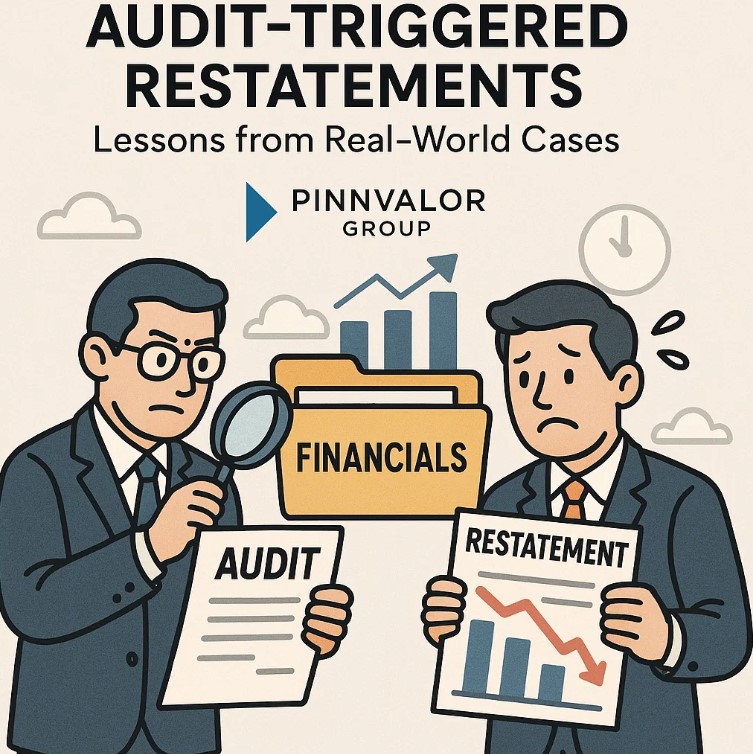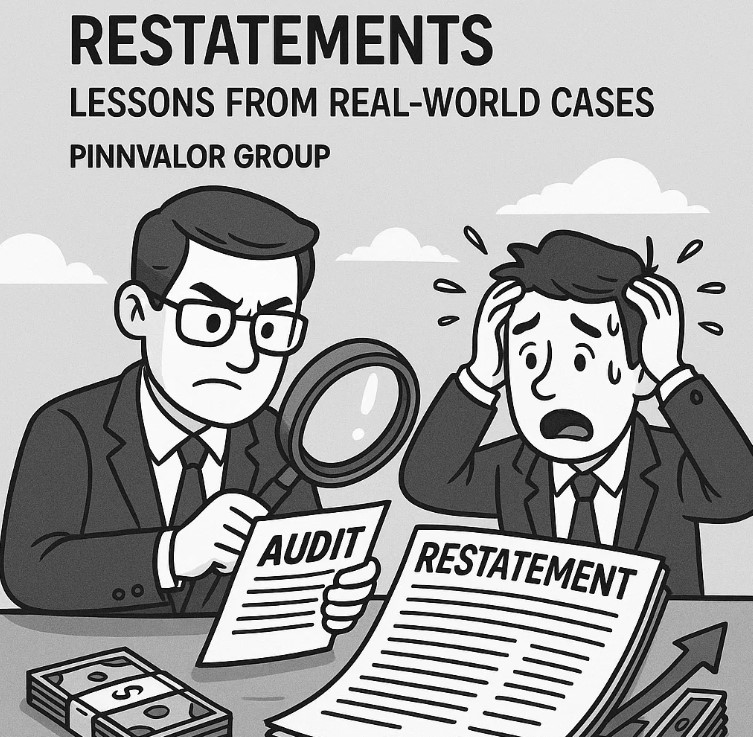
Audit-Triggered Restatements: Lessons from Real-World Cases
Financial statements are the cornerstone of corporate transparency and investor trust. However, errors, omissions, or misrepresentations in these reports can undermine that trust. Restatements occur when a company revises its previously issued financial statements to correct such errors.
When restatements are triggered by audits—whether during an annual external audit or a special investigation—the implications are significant. They not only highlight weaknesses in internal controls but also signal potential governance issues to stakeholders.
Can a single audit restatement shake the very foundation of investor trust?
When an audit forces the truth into the spotlight, companies face their ultimate test—credibility.
What is an Audit-Triggered Restatement?
An audit-triggered restatement happens when auditors, during the course of their review or audit procedures, detect material misstatements that require a company to reissue its financial statements. These could arise from:
- Accounting errors
- Fraud or intentional misrepresentation
- Misapplication of accounting standards
- Incomplete or inaccurate disclosures
Why Audit-Triggered Restatements Matter
Restatements carry consequences beyond correcting numbers:
- Investor Confidence – Restatements often lead to a temporary decline in share prices due to shaken investor trust.
- Regulatory Scrutiny – Authorities like the SEC may initiate investigations, especially in cases involving fraud.
- Reputational Damage – Credibility with stakeholders, lenders, and analysts may be adversely affected.
- Increased Audit Costs – Additional procedures and follow-up audits raise costs.
Real-World Case Insights
1. Enron Corporation (2001) – The Classic Example
- Trigger: External auditors at Arthur Andersen faced mounting pressure after whistleblowers highlighted aggressive accounting.
- Issue: Improper use of Special Purpose Entities (SPEs) to hide debt.
- Restatement Impact: $586 million reduction in reported net income.
- Lesson: Over-reliance on complex structures without transparent disclosure can lead to catastrophic reputational and financial loss.
2. Toshiba Corporation (2015) – Internal Control Failures
- Trigger: An independent investigation initiated after auditors questioned revenue recognition practices.
- Issue: Overstated profits by approximately $1.2 billion over seven years.
- Restatement Impact: Immediate drop in market capitalization and top-level resignations.
- Lesson: Weak internal controls over revenue recognition invite audit-triggered corrections that can cripple global credibility.

3. Hertz Global Holdings (2014) – Management Pressure
- Trigger: Audit committee review following auditor concerns over aggressive financial targets.
- Issue: Incorrect capitalization policies and accounting for allowances.
- Restatement Impact: Reduced 2011–2013 earnings by $153 million.
- Lesson: Unrealistic management pressure on meeting targets can influence financial reporting integrity.
4. Satyam Computer Services (2009) – Fraud Detection
- Trigger: External auditors, coupled with regulatory alerts, exposed falsified cash balances.
- Issue: Inflated profits and fictitious assets worth over $1 billion.
- Restatement Impact: Total collapse of the company, later acquired by Tech Mahindra.
- Lesson: Even large IT corporations are vulnerable to audit-triggered fraud exposure if governance is weak.
Key Takeaways from These Cases
- Strong Internal Controls – Prevention is better than correction; robust systems reduce restatement risks.
- Tone at the Top – Ethical leadership discourages manipulation.
- Clear Communication with Auditors – Openness facilitates early error detection without public crises.
- Continuous Monitoring – Regular internal audits can preempt large-scale restatements.
How Companies Can Avoid Audit-Triggered Restatements
- Regular Internal Reviews – Frequent checks ensure compliance with evolving accounting standards.
- Training for Accounting Staff – Accurate interpretation of complex standards like IFRS and GAAP.
- Engaging with Auditors Early – Proactive consultation on accounting treatments reduces surprises.
- Strong Whistleblower Policies – Encourages early reporting of discrepancies.
Conclusion
Audit-triggered restatements act as a reality check for corporate governance. While they may temporarily damage reputation and finances, they also serve as vital mechanisms to restore accuracy and investor trust.
Companies that view restatements not as failures, but as opportunities to strengthen systems, emerge stronger, more transparent, and more resilient. In the end, the true cost of a restatement is not in the numbers—it’s in the trust lost or rebuilt.
